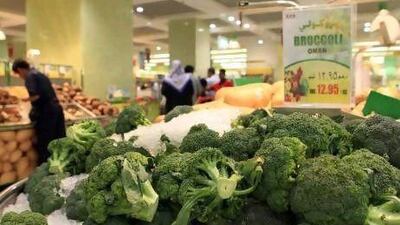DUBAI // An early-warning system is to be introduced in every GCC country in a bid to prevent the spread of food poisoning.
The GCC Rapid Alert System for Food will be based in Riyadh and will warn each country when an outbreak is registered in any of the others.
"Our goal is to coordinate between GCC countries regarding food safety and protect consumers from dangers related to food," said Dr Hamad Al Kanhal, the director of surveillance centres and crisis management at the Saudi Food and Drug Authority.
Dr Al Kanhal was speaking at the Dubai International Food Safety Conference, which began yesterday.
He said similar systems in Europe and elsewhere had proved their worth.
National organisations signed up to the network will receive direct information from each other and other regions.
Instant alerts can be issued if products pose a danger, allowing for those goods to be recalled or prevented from entering GCC countries.
"These measures will help Gulf countries deal with emergencies better," said Dr Al Kanhal.
Experts at the conference called for a parallel system to feed into international organisations.
"We need to create laws and programmes that could solve the problems facing safe and healthy food in the region," said Hussain Lootah, the director of Dubai Municipality.
Food safety has long been a challenge in the Middle East, especially the GCC, because of its harsh climate. But experts say better records would greatly improve the situation.
"History is our guide," said Caroline Smith DeWaal, the food-safety director at the Centre for Science in the Public Interest in the United States.
"We all think of science at the heart of it, and it is, but history provides valuable lessons that we don't want to repeat."
The centre has its own database, the Outbreak Alert, which uses information from the Centres for Disease Control and Prevention.
Only outbreaks that have identified food sources and pathogens make the list.
Between 1999 and 2008, the database analysed almost 5,000 diseases, which caused more than 120,000 illnesses in the US, and resulted in a significant reduction in poultry-caused disease.
The aim is to find the top pathogens and analyse them, and find out what caused them and where the food was served.
"This helps educate consumers and improve their chances of keeping families safe," said Ms DeWaal.
The UAE's dependence on imported food also causes difficulties. The World Trade Organisation's list of leading food importers says the UAE is "in the red zone because it is very dependent on imports to feed the public".
"The challenge in Dubai is that we have many food sources. We get our food from more than 160 countries," said Khalid Al Awadi, the municipality's director of food control.
"We have programmes but they're not connected. They're important but they're definitely not enough and this is one of the challenges we are faced with to protect food."
With only four years of records from the Middle East, the database registered only 60 reports, many of which were food-poisoning cases.
"It is not robust enough for us to be able to analyse," said Ms DeWaal.
But this is just the start.
"We are facing a new era in global food safety," said Mr Lootah. "We need to look at history to be able to look at the future and deal with things appropriately to avoid foodborne diseases."
Dubai has started to record diseases through its hospitals and is now moving to schools.
Ms DeWaal said the Middle East should work with the World Health Organisation (WHO) and the Food and Agriculture Organisation (FAO), which can help with scientific evaluations of food-safety risk.
"We see a real role for the WHO and the FAO in helping develop these tools and make them better because they help in gathering information from world regions and assessing the overall burden of disease," said Ms DeWaal.
"They could play an even more successful role in helping countries understand these risks."

